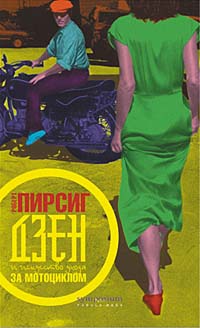Привет! Сегодня у вас особенно незнакомое лицо.
Чтобы исправить это, попробуйте ввести пароль.
А ещё у нас сейчас открыта регистрация.
Чтобы исправить это, попробуйте ввести пароль.
А ещё у нас сейчас открыта регистрация.
№989
вторник 12 лет 285 дней назад |
зоопарки сиюминутное винтаж исторические фото стимпанк дизельпанк рокетпанк австралия лингвистика философия психология ресторанъ жёлтый дом на колёсах политика о спорт, ты — мир! ссср музыка дискотека радио сайгон цитаты книги фильмы сериалы машинное отделение |
|
|
|






Про шотоквы и Федра.
Цветные фото той поездки 1968 года.
Интервью Обсерверу в 2006 году.
— Что? — кричит он.
— Дрозд!
Он что-то ответил, но я не расслышал. — Что? — ору я.
Он берёт меня за шлем и вопит: «Да я их столько видел, пап!»
— Вот как! — откликаюсь я. Затем киваю. В одиннадцать лет краснокрылые дрозды не очень-то впечатляют. Для этого надо быть постарше.
На мотоцикле такого кадра нет. У тебя устанавливается связь со всем окружающим. Ты сам находишься на сцене, а не просто наблюдаешь за ней со стороны, при этом чувство присутствия просто потрясающе. Этот бетон, со свистом проносящийся в пятнадцати сантиметрах под ногами, настоящий, точно такой же, по какому мы ходим, он прямо здесь, так смазанный от скорости, что его нельзя чётко рассмотреть, и в то же время в любой миг можно опустить ногу и коснуться его.
Вот уже несколько лет, как мы с женой и друзьями пристрастились к таким дорогам. Иногда мы съезжали на них ради разнообразия или чтобы срезать путь до другой магистрали. И каждый раз природа оказывалась настолько великолепной, что мы съезжали с шоссе с чувством облегчения и радости. Мы поступали так раз за разом, не сознавая очевидного: эти дороги действительно отличаются от основных. Здесь совсем другой ритм жизни, люди, живущие у таких дорог, очень своеобразны. Они никуда не ездят. Они не настолько заняты, чтобы не уделить вам внимания. Они прекрасно осведомлены о здесь и теперь. Об этом почти забыли те, кто много лет тому назад переехал в город, об этом забыли их потомки. И мы с радостью сделали это открытие. Я иногда удивлялся, почему нам потребовалось так долго понять это. Всё у нас было перед глазами, а мы не видели этого. Нам, вероятно, вдолбили мысль, что настоящая жизнь — в городе, а это всё лишь тоскливая глушь.
Мы научились отыскивать хорошую дорогу по карте, к примеру. Если линия петляет, это хорошо. Это означает холмы. Если же это единственный путь из какого-нибудь городка в другой покрупнее, это плохо. Лучшие дороги всегда соединяют одно пустое место с другим, между которыми при этом есть и другая дорога, более короткая.
Unless you're fond of hollering you don't make great conversations on a running cycle. Instead you spend your time being aware of things and meditating on them. On sights and sounds, on the mood of the weather and things remembered, on the machine and the countryside you're in, thinking about things at great leisure and length without being hurried and without feeling you're losing time.
What I would like to do is use the time that is coming now to talk about some things that have come to mind. We're in such a hurry most of the time we never get much chance to talk. The result is a kind of endless day-to-day shallowness, a monotony that leaves a person wondering years later where all the time went and sorry that it's all gone. Now that we do have some time, and know it, I would like to use the time to talk in some depth about things that seem important.
What is in mind is a sort of Chautauqua…that's the only name I can think of for it…like the traveling tent-show Chautauquas that used to move across America, this America, the one that we are now in, an old-time series of popular talks intended to edify and entertain, improve the mind and bring culture and enlightenment to the ears and thoughts of the hearer. The Chautauquas were pushed aside by faster-paced radio, movies and TV, and it seems to me the change was not entirely an improvement. Perhaps because of these changes the stream of national consciousness moves faster now, and is broader, but it seems to run less deep. The old channels cannot contain it and in its search for new ones there seems to be growing havoc and destruction along its banks. In this Chautauqua I would like not to cut any new channels of consciousness but simply dig deeper into old ones that have become silted in with the debris of thoughts grown stale and platitudes too often repeated. «What's new?» is an interesting and broadening eternal question, but one which, if pursued exclusively, results only in an endless parade of trivia and fashion, the silt of tomorrow. I would like, instead, to be concerned with the question «What is best?,» a question which cuts deeply rather than broadly, a question whose answers tend to move the silt downstream. There are eras of human history in which the channels of thought have been too deeply cut and no change was possible, and nothing new ever happened, and «best» was a matter of dogma, but that is not the situation now. Now the stream of our common consciousness seems to be obliterating its own banks, losing its central direction and purpose, flooding the lowlands, disconnecting and isolating the highlands and to no particular purpose other than the wasteful fulfillment of its own internal momentum. Some channel deepening seems called for.
«They were just commuting to work.»
She perceives well but there was nothing unnatural about it. «Well, you know, work,» I repeat. «Monday morning. Half asleep. Who goes to work Monday morning with a grin?»
«It's just that they looked so lost,» she says. «Like they were all dead. Like a funeral procession.» Then she puts both feet down and leaves them there.
I see what she is saying, but logically it doesn't go anywhere. You work to live and that's what they are doing. «I was watching swamps,» I say.
...
It is as though two old friends, a Catholic and Protestant, were sitting drinking beer, enjoying life, and the subject of birth control somehow came up. Big freeze-out.
...
They are both plenty bright enough. Either one of them could learn to tune a motorcycle in an hour and a half if they put their minds and energy to it, and the saving in money and worry and delay would repay them over and over again for their effort. And they know that. Or maybe they don't. I don't know. I never confront them with the question. It's better to just get along.
But I remember once, outside a bar in Savage, Minnesota, on a really scorching day when I just about let loose. We'd been in the bar for about an hour and we came out and the machines were so hot you could hardly get on them. I'm started and ready to go and there's John pumping away on the kick starter. I smell gas like we're next to a refinery and tell him so, thinking this is enough to let him know his engine's flooded.
«Yeah, I smell it too,» he says and keeps on pumping. And he pumps and pumps and jumps and pumps and I don't know what more to say. Finally, he's really winded and sweat's running down all over his face and he can't pump anymore, and so I suggest taking out the plugs to dry them off and air out the cylinders while we go back for another beer.
Oh my God no! He doesn't want to get into all that stuff.
«All what stuff?»
«Oh, getting out the tools and all that stuff. There's no reason why it shouldn't start. It's a brand-new machine and I'm following the instructions perfectly. See, it's right on full choke like they say.»
«Full choke!»
«That's what the instructions say.»
«That's for when it's cold!»
«Well, we've been in there for a half an hour at least,» he says.
It kind of shakes me up. «This is a hot day, John,» I say. «And they take longer than that to cool off even on a freezing day.»
He scratches his head. «Well, why don't they tell you that in the instructions?» He opens the choke and on the second kick it starts. «I guess that was it,» he says cheerfully.
And the very next day we were out near the same area and it happened again. This time I was determined not to say a word, and when my wife urged me to go over and help him I shook my head.
He is not stubborn, not narrow-minded, not lazy, not stupid. There was just no easy explanation.
Sylvia once said defensively, «Well, you know how to cope with it,» which puffed me up so much at the time I was embarrassed to ask what «it» was and so remained somewhat puzzled. I thought it was something more mysterious than technology.
...
And their things, their monster keeps eating up land and polluting their air and lakes, and there is no way to strike back at it, and hardly any way to escape it.
That attitude is not hard to come to. You go through a heavy industrial area of a large city and there it all is, the technology. In front of it are high barbed-wire fences, locked gates, signs saying NO TRESPASSING, and beyond, through sooty air, you see ugly strange shapes of metal and brick whose purpose is unknown, and whose masters you will never see. What it's for you don't know, and why it's there, there's no one to tell, and so all you can feel is alienated, estranged, as though you didn't belong there. Who owns and understands this doesn't want you around. All this technology has somehow made you a stranger in your own land. Its very shape and appearance and mysteriousness say, «Get out.»
То у нас дома мальчик (дяденька ;^) из Бельгии останавливается (сын с ним в Ванкувере познакомился), то девочка из Франции... Дочь сейчас в Москве у кого-то колбасит... Даже меня с детьми детки пристраивали — то в Мексике (у студентов индусов), то в Турции (у приятеля дочки из Амстердама)...
Проснувшись утром в отеле в одном из заповедников Гватемалы и поплескавшись в речушке — потопал обратно к гостинице и обалдел: на парковке среди машин стоит мотоцикл с Queensland'скими (север Австралии) номерами.
А потом с хозяином разговорились: он мотоцикл в самолет погрузил и отправился на самый юг Южной Америки и оттуда вверх на север... Сын спрашивает: а сколько стоило мотоцикл перевезти? — $3.5K — дорого..: тут за половину этой суммы можно купить мотоцикл такого же класса.. Парень говорит: да знаю я... это скорее просто сентиментальность...